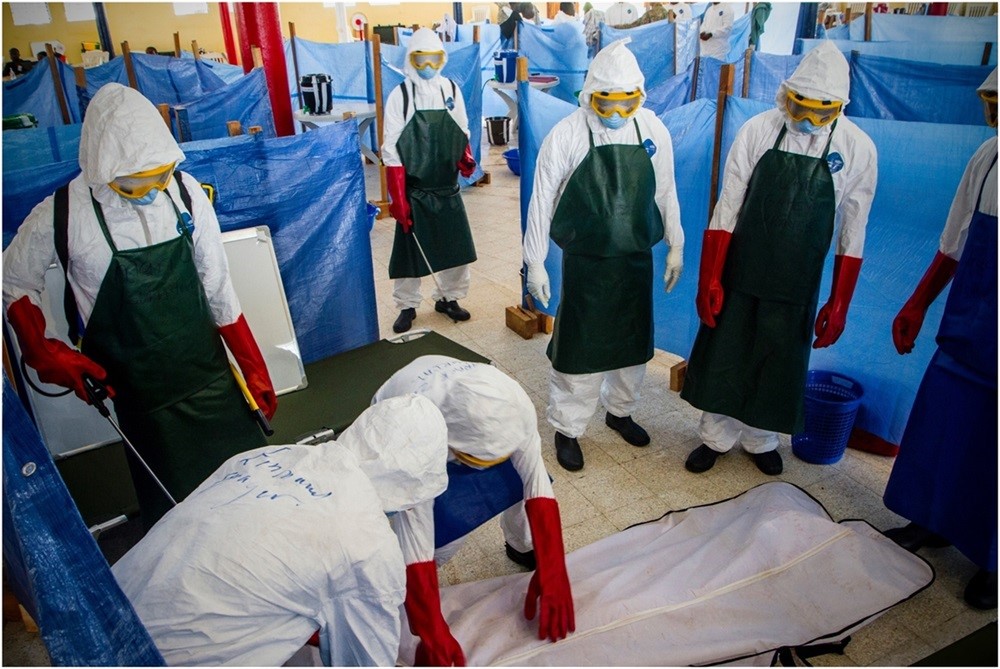GENEVA – On 17 July, the Director-General of the World Health Organization (WHO) declared the current Ebola virus outbreak in the DRC an international emergency.

The outbreak has been classified as a Grade 3 emergency since August 2018. A Grade 3 emergency is a situation in which “a single or multiple country event with substantial public health consequences that requires a substantial WHO Country Office (WCO) response and/or substantial international WHO response. Organizational and/or external support required by the WCO is substantial. An Emergency Support Team, run out of the regional office, coordinates the provision of support to the WCO.”
Currently, the Ebola crisis in the DRC is one of the eight Grade 3 emergencies listed by the WHO. The others include Cyclone Idai, the Mozambique flooding, and the public health in Nigeria, Somalia, South Sudan, Syria, and Yemen.
The characteristics of the Ebola virus have been holding true to form in this latest outbreak. The average fatality rate runs at about half of all people who contract the disease. The actual rates have ranged from as few as 25 percent to as many as 90 percent of those infected. Approximately 2,500 people have contracted the virus over the past 12 months, of which 1,700 fatalities have been confirmed.
Before the WHO update, the Centers for Disease Control (CDC) had issued a Level Two Travel Notice, requiring special safety measures for anyone visiting the North Kivu and Ituri regions of the DRC.
Because Missions Box News has been following the Ebola crisis over the past year, we feel that it is essential to explain what the WHO’s declaration of an international emergency means. The acronymic name used by WHO is a PHEIC, short for Public Health Emergency of International Concern.
The PHEIC said, in part,
“It is time for the world to take notice and redouble our efforts. We need to work together in solidarity with the DRC to end this outbreak and build a better health system.”
An international public health emergency sounds frightening, but that is not necessarily the case. STAT News described a WHO PHEIC as “a crisis in the affected region of DRC and a real risk to neighboring countries. Governments around the world need to be paying more attention to it, but the risk of global spread is low.”
In other words, it is not likely that the Ebola virus outbreak is coming to a city near you.
A PHEIC is an advisory indicating that the WHO has assumed temporary authority to share crisis information with other countries without the express consent of the governing bodies in which the emergency actually is.
By issuing the declaration, the WHO may issue temporary recommendations that include border closures, airline flight restrictions (in or out), and suspension of importation of goods and travel visas. Note, however, that the WHO has no enforcement authority, at least at this time.
The declaration of a PHEIC is solely to gain the attention of governments, NGOs, and other entities that may need to be aware, or that may be able to aid.
Nonetheless, when 1,700 people die from a viral outbreak, we all need to be concerned and stay abreast of the news before we become subjects of it.
For more information on the 2018-2019 Ebola virus outbreak, read the following Missions Box News articles:
- MAF Assists World Health Organization to Fight Ebola Outbreak in the DRC
- WHO at War with Ebola in Congo – Again
- Ebola Death Toll Climbing in the Congo
- Ebola Still Threatening the Democratic Republic of Congo
- Ebola Outbreak Now Second Largest Ever
- Ebola In Congo Is Spreading
- Doctors Without Borders Suspends Work After Attacks on Ebola Clinics in Congo
To read more news on the Ebola Outbreak on Missions Box, go here.
Sources:
- World Health Organization, Ebola outbreak in the Democratic Republic of the Congo declared a Public Health Emergency of International Concern
- STAT, What the Ebola emergency means, what it doesn’t mean, and what’s next
- Healthline, What Travelers Should Know About the Ebola Outbreak
Image Source:
- Courtesy of the United States Africa Command




